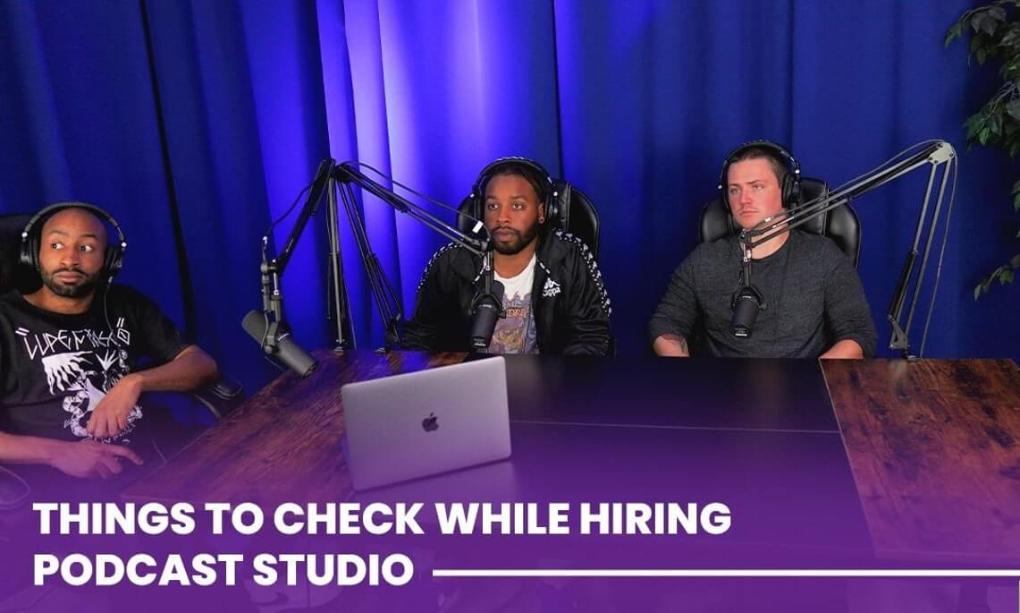Things to check while hiring Podcast Studio

It's never been easier to start a podcast. There are a plethora of tutorials available to help you through the process of recording and publishing a program. It's keeping it going that's the issue. It takes a lot of time to show up every week and put out new episodes. You may discover that it requires more time than you planned.
A podcast studio can help with this. By handling the editing, as well as maybe the show notes and administrative work, a good recording studio can save you hours each week.
How Does the recording studio bill?
Many recording studios and engineers charge by the finished product. You might be charged a set fee for each podcast. There's nothing wrong with that, but you should be explicit about how you'll both assess when a podcast is finished. How many changes will you be permitted to make? All of these issues should be addressed before agreeing to pay for a "completed" product.
Is the podcast studio paid on an hourly basis? What is included in that hourly rate if they do? Is it possible to arrive early to load in or is the time spent loading in and setting up gear included as studio time? How does the studio deal with issues that will inevitably develop during the project?
What Digital Audio Workstation Does the Recording studio Utilize?
It's possible that the tracks you record in one DAW won't be easily transferable to another. This may or may not be relevant to you, but if you want to take your production to other studios for development (or even work on it yourself), ensure the engineer uses a DAW that you have access to.
Type of Backline the recording studio has?
If you're going to employ some home gear, the backline availability can be important. If you're planning to record a lot of guitar tracks, having a range of amps and cabinets at your disposal can assist to spice up your sound! If you're going to use keyboards, having a good library of virtual instruments or a selection of keyboards will be essential for rounding out the sound of your project.
Variety of mics available with the Studio
Microphones are a very personal choice, and knowing what kind of mics an engineer uses on each source can reveal a lot about the sound of your finished product. Again, having a wide range of options in this category can lead to a more varied recording in the future.
Is the engineer Knowledgeable enough?
Having an engineer that appears to be adaptable, open to recommendations, and confident in their decisions is the "perfect blend" of attributes you need to get the perfect mix!
The engineer should know the equipment better than anyone else. They should be able to rapidly and efficiently get a decent sound, as well as think on their feet when things don't go as planned.
The location of the studio
The studio's location is something that few bands think about, yet it's crucial for keeping the day productive. Is it a far way from one of the band members, making it more difficult for them to come there for mixing and/or overdubs after the initial tracking day? Is it in the heart of a bustling metropolis with no parking or loading zones? Is there enough food to go around?
Conclusion:
None of these characteristics necessarily imply that you won't be able to use a given recording studio; you'll need to plan to deal with the problem!
You receive everything that comes with a recording studio when you hire it out for your project. Your final product will be influenced by the equipment, software, location, engineer, and even your reputation. Here are six items that I recommend people cross off their to-do list before putting their money down on a recording studio experience.